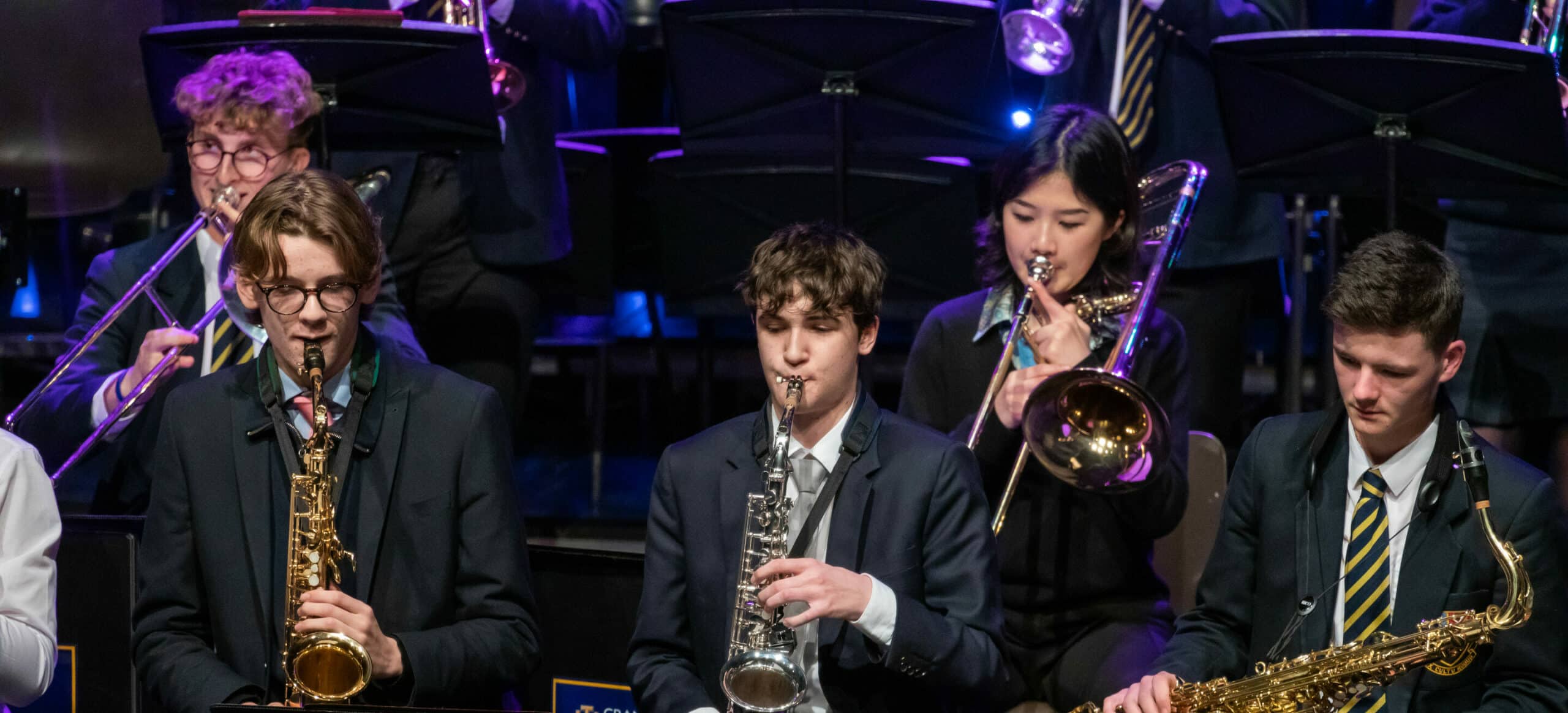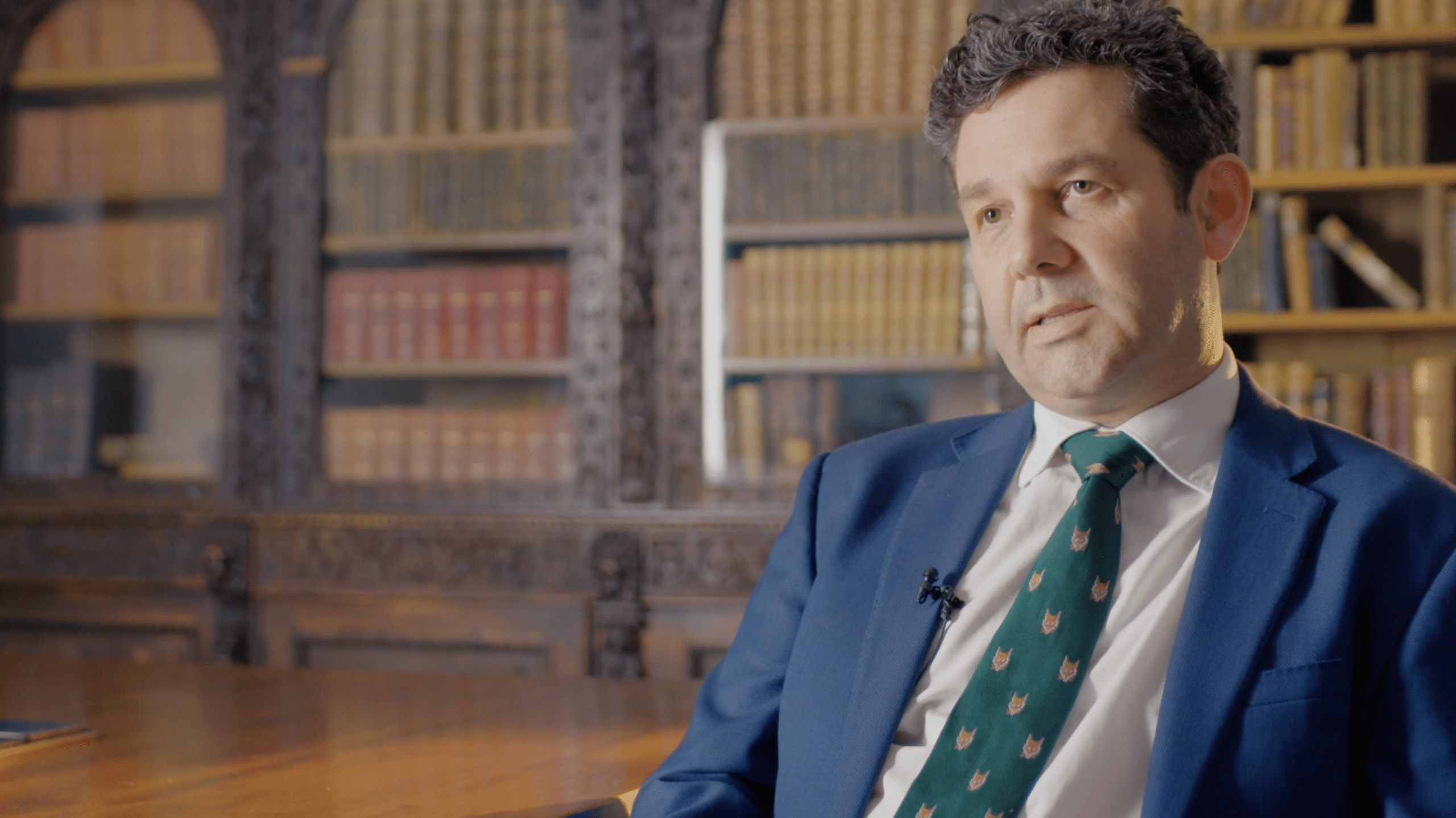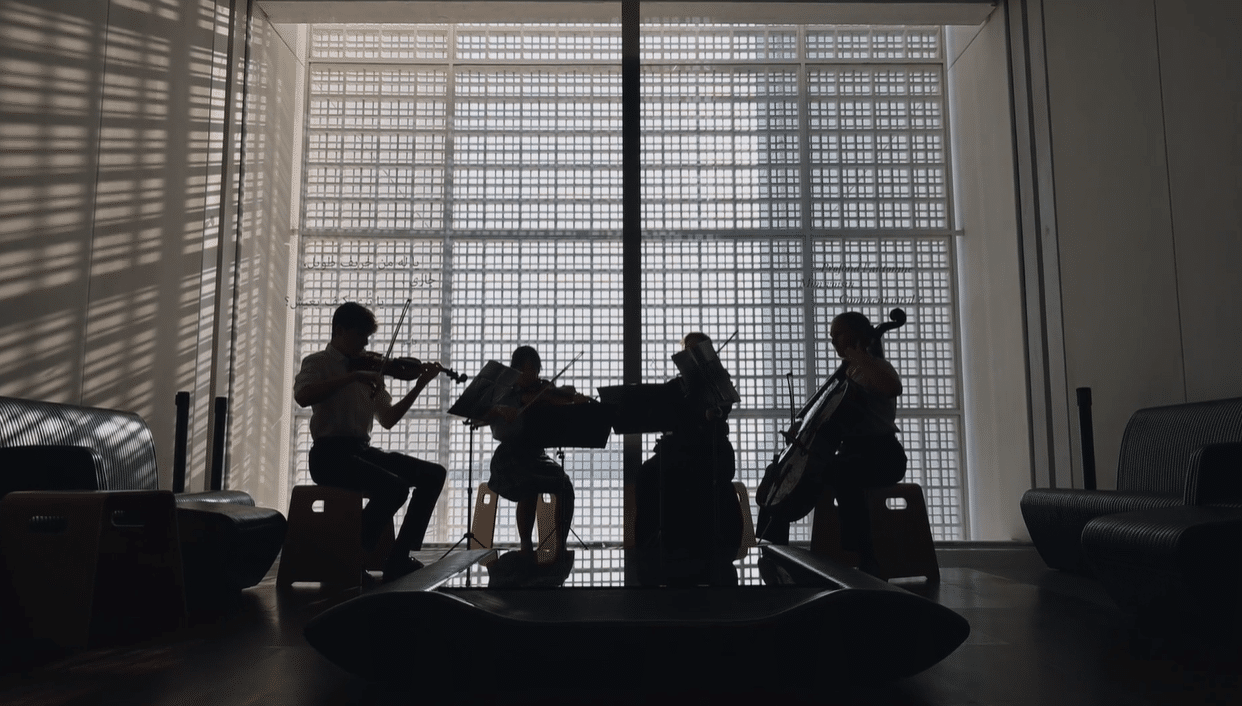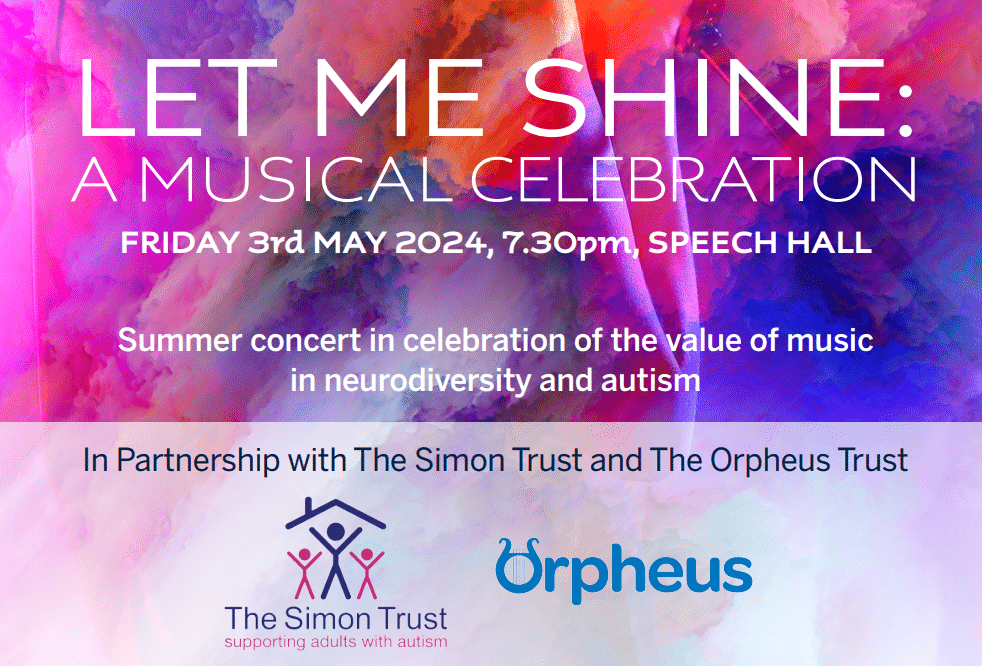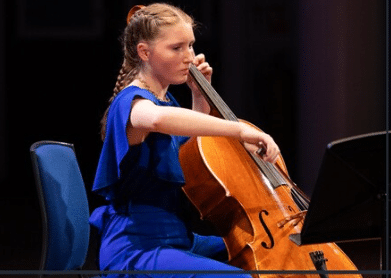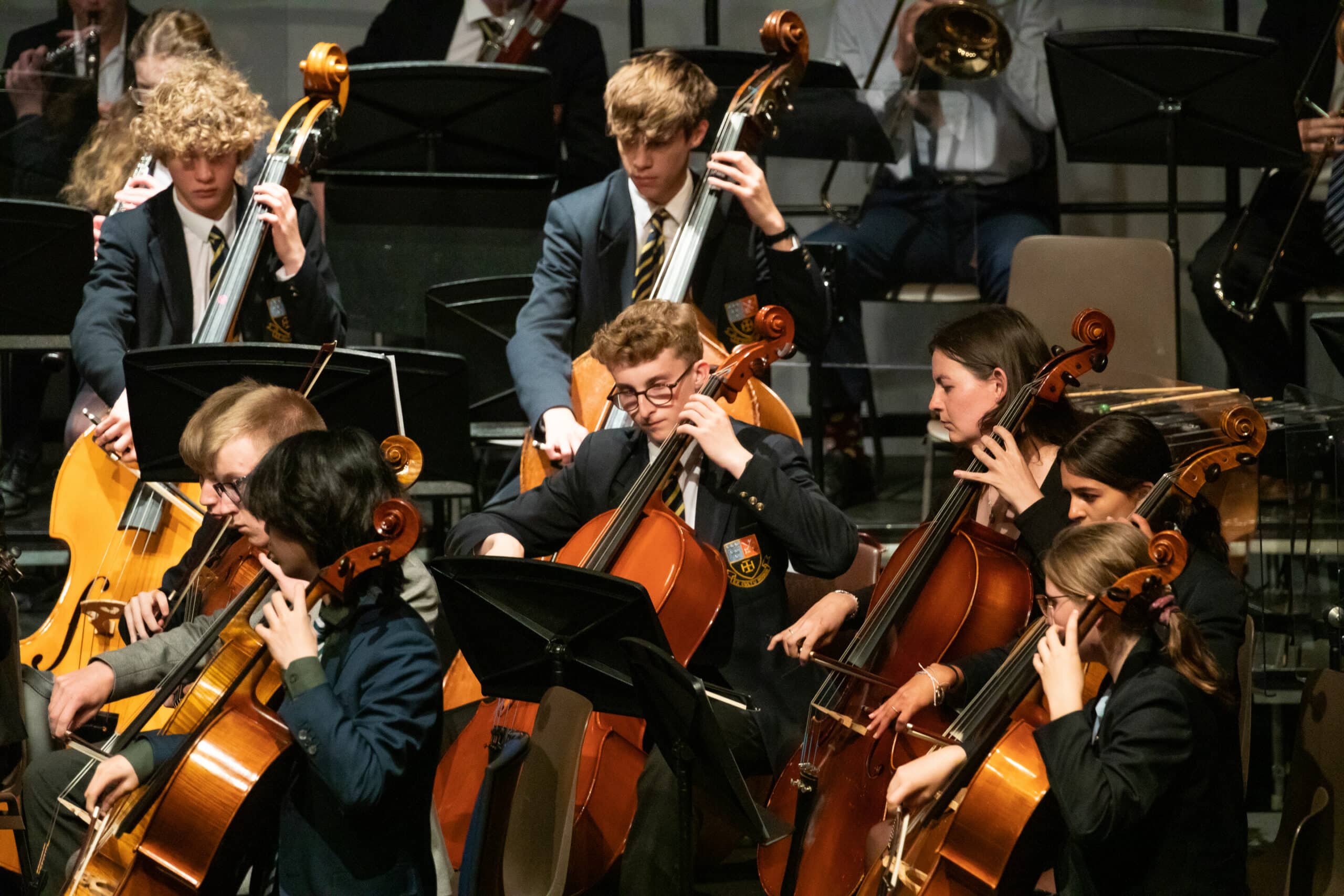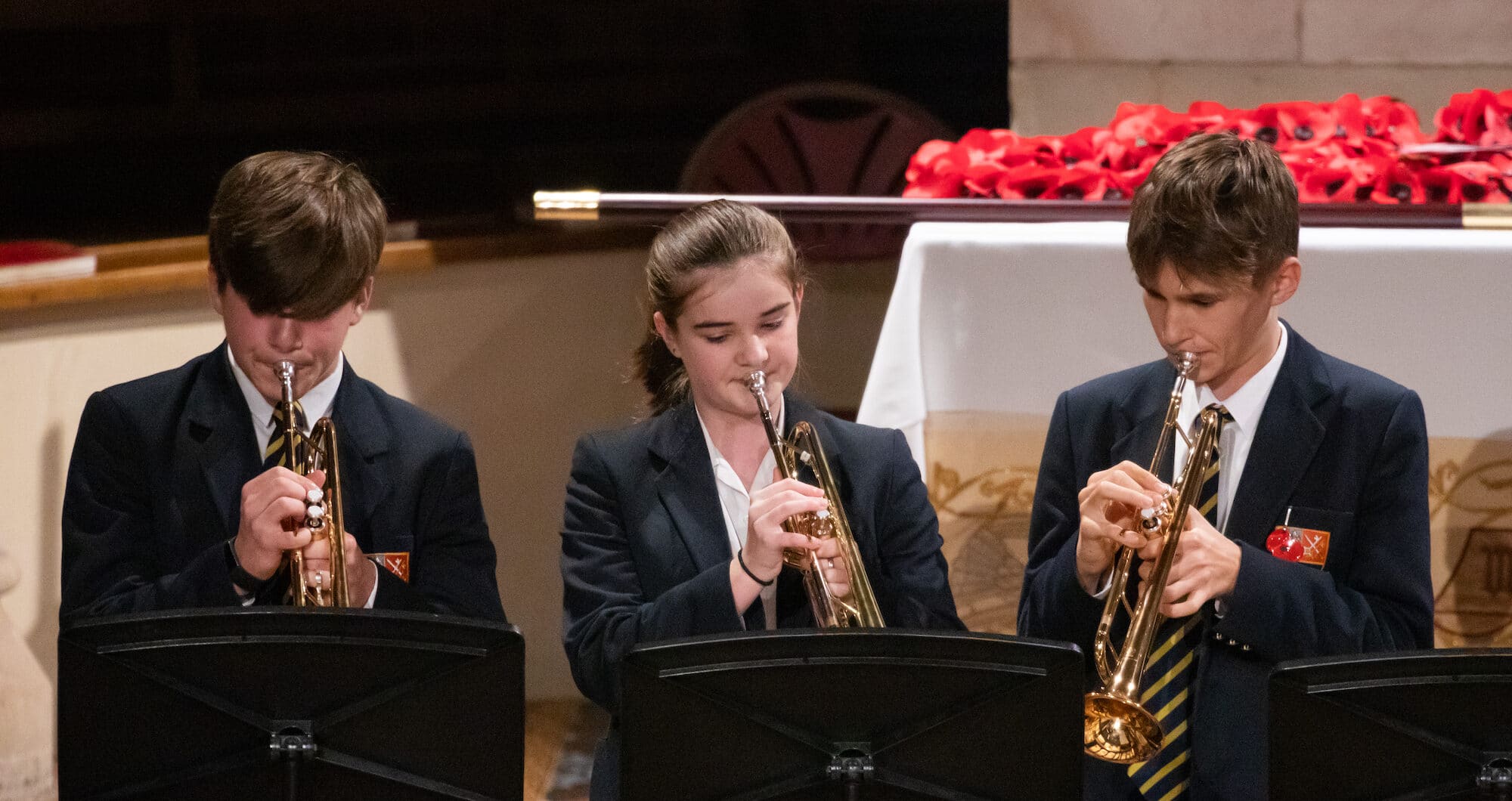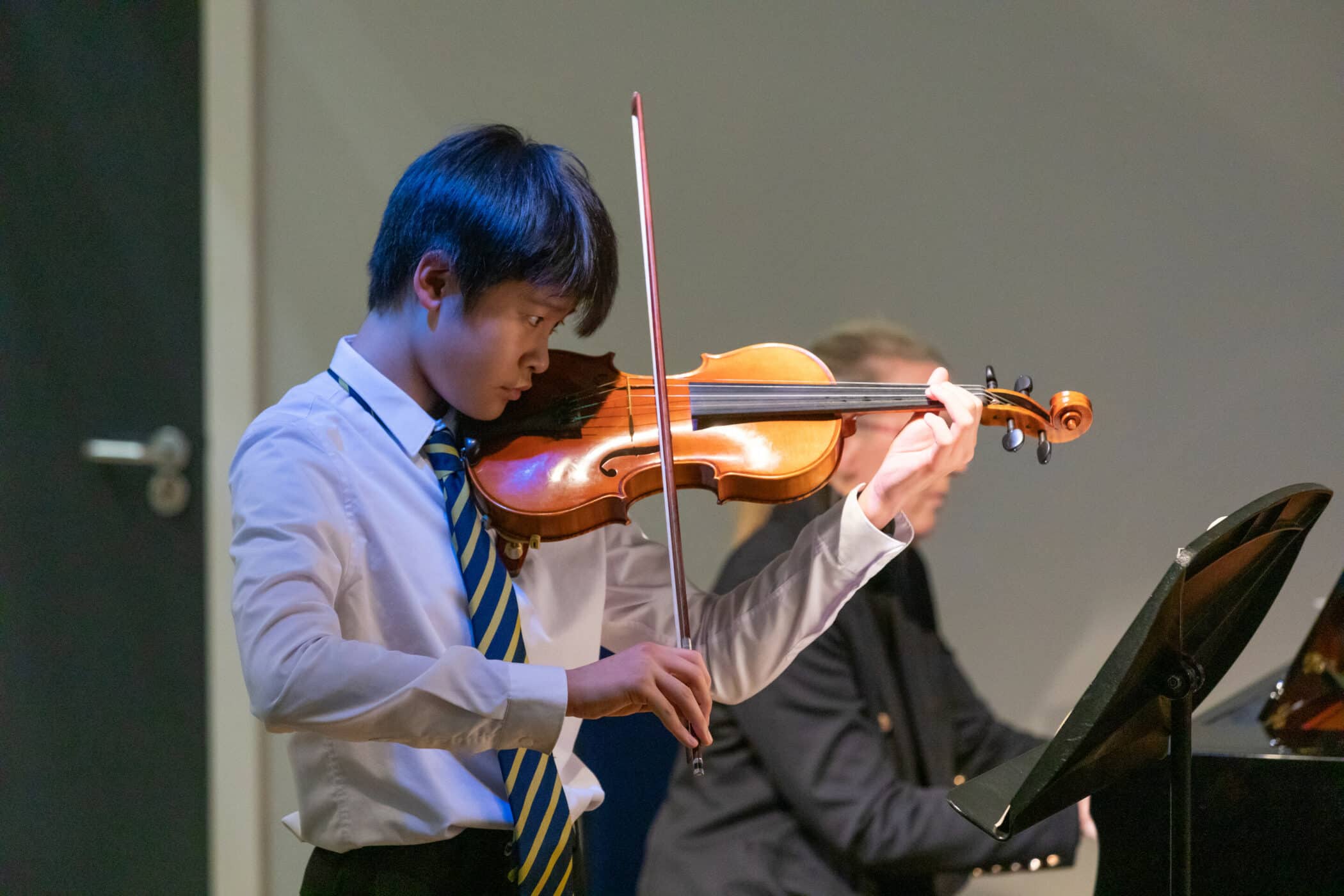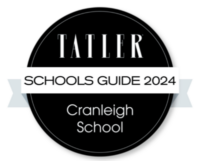Whether taking an instrumental lesson, performing in a rock concert or singing on the touchlines, music plays a central role in school life. At Cranleigh, music is for everyone.
We want every pupil to experience the widest range of music making possible, either as a performer or listener. In addition to music as a curriculum subject, we encourage all students to engage with the co-curricular programme; either by learning an instrument, joining a choir or ensemble, or attending concerts, recitals and gigs. The music department is a hub of activity and we work hard to ensure it is a place where all musical abilities, interests and tastes are equally welcome and celebrated.
UPCOMING EVENTS
Instrumental Tuition
A significant portion of Cranleighans learn to play at least one instrument. Whilst the piano is comfortably the most popular choice, we are proud to offer lessons in all of the orchestral instruments as well as guitars, keyboards and voice. Our team of visiting music teachers comprises some of the finest musicians in London, many of whom regularly play with top orchestras or in the pit of West End shows.
Ensembles
We are proud of our extensive array of orchestras, choir and ensembles. There are groups for musicians of all ages and abilities, and to suit a wide range of styles and genres. Whether pupils play with the symphony orchestra, jazz ensemble or a rock band, they can be assured of high-quality ensemble coaching and a busy programme of performance opportunities.
Facilities
The Merriman Music School is housed within the main School buildings on two floors. At its heart is a 100-seater auditorium with a grand piano and a high-tech lighting, sound and projection system. We are also fortunate to have a fully-equipped Recording Studio and sound-insulated Rock Room, which enable pupils to rehearse and record together. Fourteen further practice rooms, all with good quality pianos, can be used throughout the day or evening. Our Chapel boasts a recently installed three-manual Mander pipe organ and Steinway ‘D’ grand piano.
Music Scholarships
We celebrate and reward talent with our music scholarship programme. Applicants will be Grade 5/6 standard on at least one instrument, and eager to make a significant contribution to Cranleigh’s musical life. Prospective families are welcome to arrange a conversation with the Director of Music prior to application.
